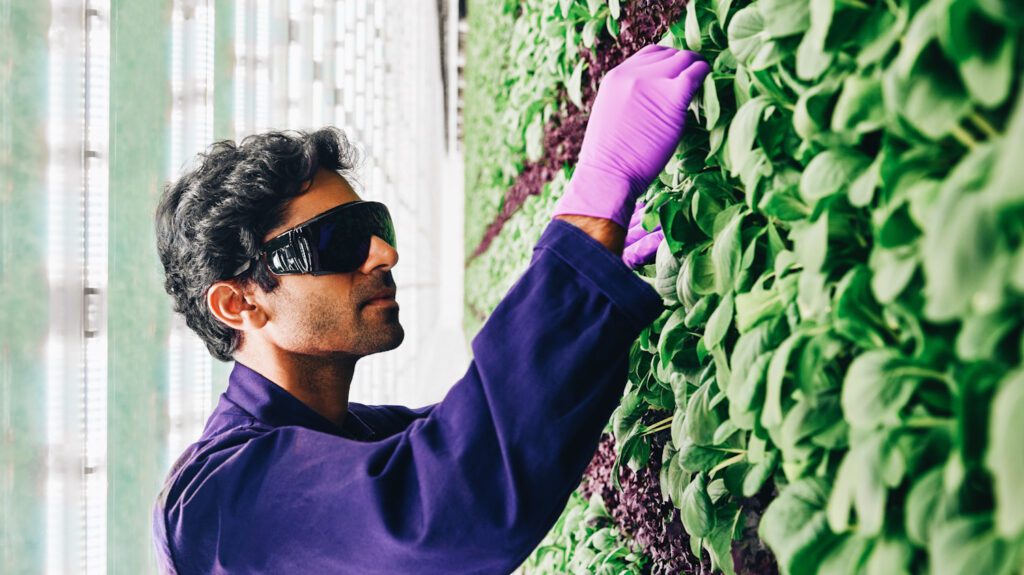Walmart just announced its investment in vertical farming.
The international retailer—which is the single largest company in the world, both by revenue and by number of employees—is investing in Plenty, an indoor vertical farm headquartered in San Francisco.
Walmart will stock the startup’s leafy greens, including lettuce, baby arugula, baby kale, bok choy, and mizuna, at all 250 of its California locations later this year. Plenty CEO Arama Kukutai told CNBC that the collaboration could help improve access to fresh vegetables.
“It creates the opportunity to actually get to scale, not just being a niche provider of expensive greens, as the category has somewhat been accused of in the past,” he explained. “This isn’t just about high-quality, organic leafy greens. This is about getting to consumers on a more democratic and broad basis.”
In a statement, Walmart’s chief merchandising officer said: “We believe Plenty is a proven leader in a new era of agriculture, one that offers pesticide-free, peak-flavor produce to shoppers every day of the year. This partnership not only accelerates agricultural innovation but reinforces our commitment to sustainability.”
Walmart’s investment in Plenty is part of a $400 million Series E fundraising round led by One Madison Group and JS Capital with SoftBank Vision Fund. According to Forge Global, Plenty most recently raised $175 million in 2019 at a post-money valuation of over $1 billion.
The company plans to expand to the East Coast soon and will begin growing other kinds of crops such as strawberries and tomatoes, both popular choices for vertical growers.
Walmart invests in Plenty’s efficient vertical farming
Put simply, vertical farming means growing plants in stacked layers, typically within a controlled environment, but sometimes outdoors. This makes it suitable for incredibly efficient food production, whether on a large scale or as part of a small urban or community garden.
Many vertical farms also incorporate soilless techniques such as hydroponics and aeroponics, which use significantly less land and water than other forms of agriculture, particularly if used within a closed-loop system that recycles water and nutrients.
Indoor farms can also be created in parts of the world with hostile weather conditions (such as deserts) or where a lack of arable land and good soil prevents outdoor farming.
According to Plenty, its farming techniques use no bleach, pesticides, or GMOs, and heavily rely on a controllable environment created by indoor agriculture. The company’s farms are able to increase the overall yield of crops by 350 times compared to traditional methods.
In March of last year, Grand View Research published an analysis predicting that the vertical farming market overall could reach $21.15 billion by 2028, thanks in particular to its advantages over traditional agriculture in the face of changing global temperatures.
Last year, British luxury supermarket chain Marks & Spencer partnered with vertical farm Infarm to grow fresh herbs within stores themselves, while New Jersey’s Bowery Farm closed a $90 million fundraising campaign back in 2018 to expand its operations in New York City.
Along with other companies such as AeroFarms, also based in New Jersey, Dutch startup PlantLab, and New York’s BrightFarms, Plenty and Bowery Farm are exploring vertical farming techniques as a solution to changing global temperatures, food deserts, and food inequality.


